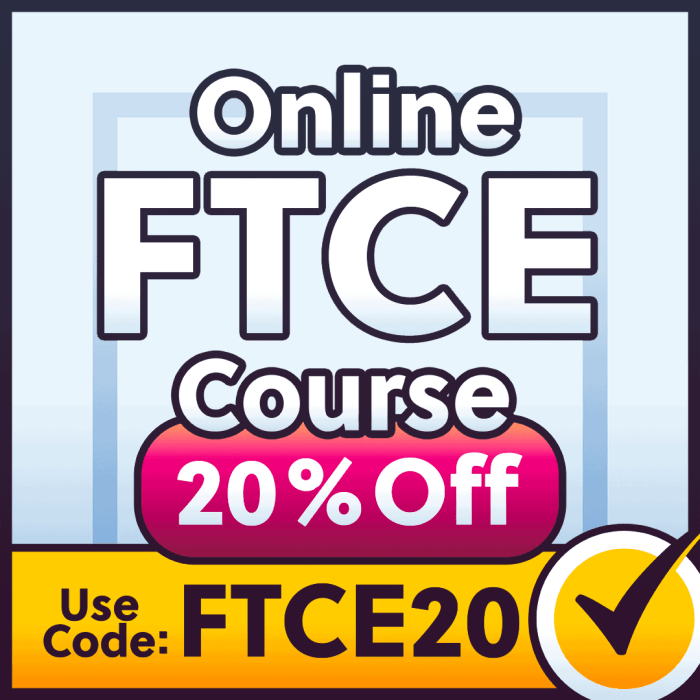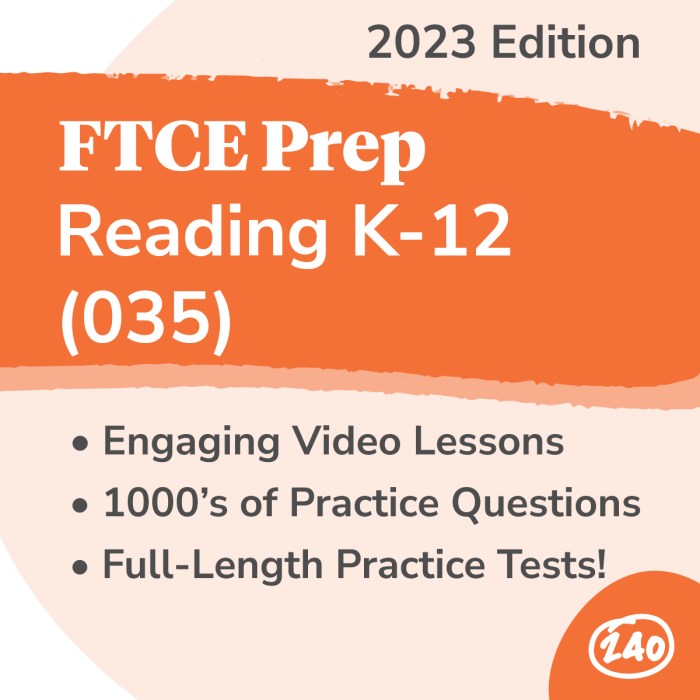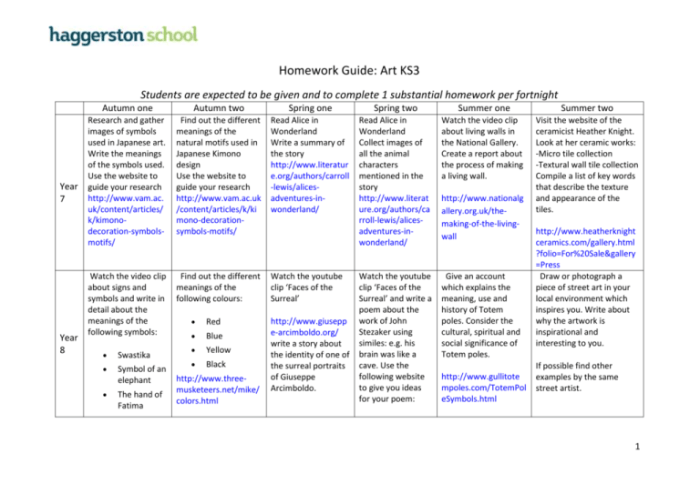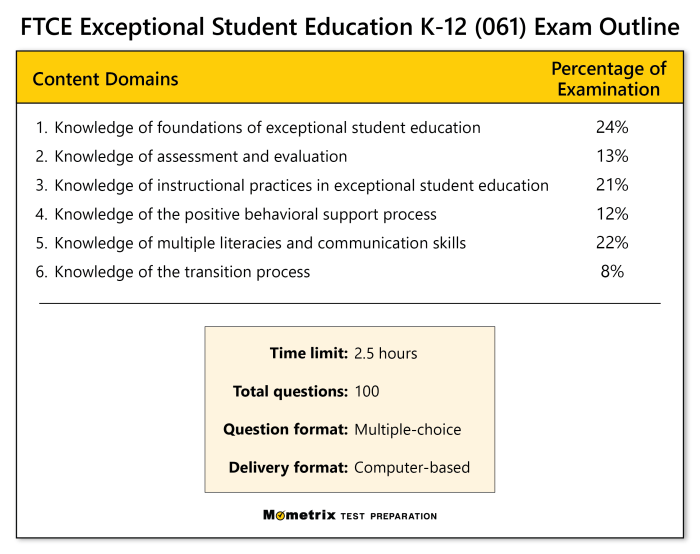Embark on an artistic adventure with the FTCE Art K-12 Study Guide, your trusted companion on the path to certification. Dive into a comprehensive exploration of this invaluable resource, unlocking the secrets to excel in the field of art education.
This guidebook provides a roadmap for aspiring art educators, equipping them with the knowledge and skills to navigate the FTCE Art K-12 exam with confidence. Get ready to delve into the depths of art history, theory, and practice, as we unravel the intricacies of this indispensable tool.
Overview of the FTCE Art K-12 Study Guide

The FTCE Art K-12 Study Guide is an essential resource for educators who are preparing to take the Florida Teacher Certification Examination (FTCE) in Art K-12. The guide provides a comprehensive overview of the exam content, including the knowledge and skills that candidates are expected to possess.
The FTCE Art K-12 exam is designed to assess the knowledge and skills of candidates who are seeking certification to teach art in grades K-12 in Florida. The exam covers a wide range of topics, including art history, art criticism, art production, and art education.
Target Audience and Eligibility Requirements
The FTCE Art K-12 Study Guide is intended for educators who are preparing to take the FTCE Art K-12 exam. Candidates must have a bachelor’s degree in art education or a related field and must have completed a teacher preparation program that is approved by the Florida Department of Education.
Content Analysis of the FTCE Art K-12 Study Guide

The FTCE Art K-12 Study Guide is a comprehensive resource designed to help prospective teachers prepare for the Florida Teacher Certification Examination in Art. The guide covers a wide range of topics essential for teaching art in grades K-12.The study guide is divided into five major sections:
- Foundations of Art Education
- Art History and Appreciation
- Art Production
- Art Criticism and Aesthetics
- Assessment and Instruction
Each section covers a specific aspect of art education, providing a thorough overview of the key concepts and topics.The section on Foundations of Art Education introduces the historical and philosophical foundations of art education, as well as the principles and practices of teaching art.
The section on Art History and Appreciation provides an overview of major art movements and periods, as well as the works of significant artists.The section on Art Production covers the various techniques and media used in art, including drawing, painting, sculpture, and ceramics.
The section on Art Criticism and Aesthetics examines the principles of art criticism and the different ways of interpreting and evaluating art. Finally, the section on Assessment and Instruction provides guidance on assessing student learning and developing effective art instruction.
Assessment Strategies and Sample Questions: Ftce Art K-12 Study Guide
The FTCE Art K-12 exam employs various assessment strategies to evaluate candidates’ knowledge and skills. These strategies include:
- Selected-Response Questions:Multiple-choice questions that assess candidates’ understanding of art concepts, theories, and practices.
- Constructed-Response Questions:Open-ended questions that require candidates to demonstrate their ability to analyze, interpret, and evaluate art.
- Performance Tasks:Practical assignments that assess candidates’ hands-on skills in creating and presenting artwork.
Sample Questions, Ftce art k-12 study guide
The study guide provides numerous sample questions and tasks to familiarize candidates with the exam’s content and format. Here are a few examples: Selected-Response Question:Which of the following is NOT an element of art?
- Line
- Shape
- Color
- Texture
- Balance
Constructed-Response Question:Analyze the composition of a given artwork. Discuss how the artist used elements and principles of design to create a cohesive and visually appealing image. Performance Task:Create a two-dimensional artwork that demonstrates your understanding of color theory.
Study Guide Preparation
The study guide thoroughly prepares candidates for the exam by providing:
- Comprehensive coverage of the exam’s content areas, including art history, theory, criticism, and practice.
- Practice questions and tasks that simulate the actual exam experience.
- Strategies for answering different types of assessment questions effectively.
By utilizing the study guide’s resources, candidates can enhance their knowledge, develop their skills, and gain confidence in their ability to succeed on the FTCE Art K-12 exam.
Study Plan and Preparation Tips

The FTCE Art K-12 Study Guide is your roadmap to success on the exam. Use it to design a comprehensive study plan that fits your schedule and learning style. Set realistic goals, allocate time for each topic, and stick to your plan as much as possible.
Effective study methods include:
- Active recall: Test yourself on the material regularly, without looking at your notes.
- Spaced repetition: Review the material at increasing intervals to strengthen your memory.
- Mind mapping: Create visual representations of the concepts to connect and organize information.
- Group study: Discuss the material with classmates or study partners to gain different perspectives.
Time Management
Time management is crucial for exam success. Create a study schedule that allows you to cover all the topics in the study guide. Break down large tasks into smaller, manageable chunks. Take breaks and reward yourself for your progress.
To master the FTCE Art K-12 exam, it’s crucial to delve into case studies that illuminate the complexities of art education. One such case, Perez v. Kirk & Carrigan , highlights the legal battles surrounding censorship in schools. By examining this case, you’ll gain a deeper understanding of the delicate balance between artistic expression and student protection, ultimately enhancing your preparedness for the FTCE Art K-12 exam.
Stress Reduction
Exam stress is normal, but it can be managed. Get enough sleep, exercise regularly, and engage in relaxation techniques like deep breathing or meditation. Seek support from friends, family, or a counselor if needed.
Exam Preparation
In the weeks leading up to the exam, focus on reviewing the most important topics. Take practice tests to identify areas where you need more preparation. Familiarize yourself with the exam format and time limits. Stay positive and confident, and you will be well-prepared for the FTCE Art K-12 exam.
Additional Resources and Support

To enhance your preparation for the FTCE Art K-12 exam, consider utilizing the following resources and support systems:
Professional Development and Support Systems
Various professional development opportunities are available to art educators, including:
- Workshops and conferences organized by art education organizations
- Online courses and webinars
- Mentorship programs connecting experienced and aspiring art educators
Online Forums and Discussion Groups
Engaging with online forums and discussion groups dedicated to the FTCE Art K-12 exam can provide valuable insights and support:
- Connect with other test-takers to share experiences and strategies
- Access study materials, such as practice questions and study guides
- Receive guidance and encouragement from experienced educators
Social Media Communities
Join social media communities related to the FTCE Art K-12 exam to stay informed and connected:
- Follow relevant hashtags on platforms like Twitter and Instagram
- Join Facebook groups dedicated to the exam preparation
- Engage in discussions and seek advice from other art educators
FAQ Overview
What is the purpose of the FTCE Art K-12 Study Guide?
The FTCE Art K-12 Study Guide is designed to assist aspiring art educators in preparing for the Florida Teacher Certification Examination (FTCE) in Art K-12.
What topics are covered in the FTCE Art K-12 Study Guide?
The guide encompasses a comprehensive range of topics, including art history, theory, criticism, production, and assessment, ensuring a thorough understanding of the field.
How can the FTCE Art K-12 Study Guide help me prepare for the exam?
The guide provides practice questions, sample tasks, and effective study strategies, empowering candidates to approach the exam with confidence and readiness.
